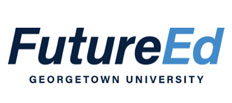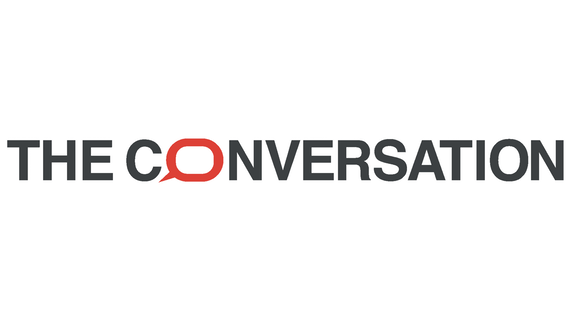Mindsets in the news

Don't Weed Out Students. Help Them Flourish.
This article describes the body of research indicating that people’s intellect and ability can grow, and provides examples of practices from higher education that draw on and reinforce the research.
Featured Scholars: Carol Dweck and David Yeager

Writing to Belong
This article details a study led by Mary Murphy in which the authors found that a brief reading and writing exercise that addressed worries about belonging increased continuous enrollment among Black, Native American, Latinx, and first-generation students at a broad-access university for the following two years.
Featured Scholars: Mary Murphy and Gregory Walton

Are Math Coaches the Answer to Lagging Achievement?
Featuring findings from a new study by Matthew Kraft, this article discusses the possibilities for mathematics coaching to be implemented at scale, to reduce teachers’ mathematics anxiety, and to improve students’ experience.
Featured Scholars: Matthew Kraft

Students will go back to school eventually. Here are 5 concrete ideas for helping them catch up, readjust
This article suggests strategies for supporting students when school buildings re-open after closures due to COVID-19, and outlines prior research related to each strategy.
Featured Scholars: Matthew Kraft

To and through: What research says about what works (and what doesn’t) to help students complete college
This article summarizes what we know from research about the factors that influence postsecondary completion.
Featured Scholars: Lindsay C. Page

The 2020 Edu-Scholar Public Influence Rankings
Multiple Mindset Scholars were included on the 2020 list of most influential education scholars.
Featured Scholars: Angela Duckworth, Barbara Schneider, Benjamin Castleman, Bridget Terry Long, Carol Dweck, David Yeager, Eric Bettinger, Jo Boaler, Matthew Kraft, Ronald Ferguson and Thomas Dee

By age 6, kids tend to see white men as more ‘brilliant’ than white women
This article summarizes new research by Andrei Cimpian and colleagues on the gendered and racialized narratives surrounding “brilliance” in our society. It features quotes from fellow Student Experience Research Network members Yasmiyn Irizarry and Mary Murphy.
Featured Scholars: Andrei Cimpian, Mary Murphy and Yasmiyn Irizarry

Podcast: Teacher Mindsets and Student Success
On the FutureEd podcast, Mary Murphy discusses how teacher mindsets influence student success with principal Belicia Reaves, kindergarten teacher Lakisha Scarlett, and Lynn Olson and Thomas Toch of FutureEd.
Featured Scholars: Mary Murphy

Oakland high schools offered an extra class to support black boys. A new study shows it substantially cut their dropout rate.
This article discusses the results of Thomas Dee’s MSN-funded study on the impact of the African American Male Achievement Initiative, how they compare to related research, and how programs like this one could expand. The article quotes Chris Chatmon, who founded the program.
Featured Scholars: Thomas Dee

Culturally Supportive Program for Black Boys Boosts On-Time Graduation Rates
Featured Scholars: Thomas Dee

Push for Ethnic Studies in Schools Faces a Dilemma: Whose Stories to Tell
Tom Dee’s research showing that ethnic studies classes helped San Francisco students improve their attendance and grades is cited in this article about the debate surrounding California’s proposed ethnic studies curriculum for K-12 public schools. He is quoted in a follow-up article.
Featured Scholars: Thomas Dee

Debate Arises over Teaching “Growth Mindsets” to Motivate Students
This article describes the popularization and implementation of growth mindset research over several years, in light of David Yeager and colleagues’ study in Nature confirming the positive effects of a well-designed growth mindset intervention in a nationally representative sample of U.S. public high schools.
Featured Scholars: David Yeager, Carol Dweck and Matthew Kraft

A mindset for success
On the Nature Podcast, David Yeager discusses the results of the National Study of Learning Mindsets.
Featured Scholars: David Yeager

Major US study shows positive impact of growth mindset
This article summarizes findings from the National Study of Learning Mindsets released in Nature.
Featured Scholars: David Yeager and Carol Dweck

New Study Shows Where ‘Growth Mindset’ Training Works (And Where It Doesn’t)
Drawing on interviews with Mindset Scholars Carol Dweck and Dave Paunesku, this article discusses the evolution of growth mindset interventions in light of the findings of the National Study of Learning Mindsets released in Nature.
Featured Scholars: Carol Dweck and David Paunesku

National Study Bolsters Case for Teaching 'Growth Mindset'
This article summarizes and interprets findings from the National Study of Learning Mindsets released in Nature, and features quotes from Robert Armenta, the principal of one of the schools that participated, and Mayme Hostetter, president of the Relay Graduate School of Education.
Featured Scholars: David Yeager and Carol Dweck

A Proof Point for the Value of Growth Mindsets
FutureEd interviews Mindset Scholar David Yeager about findings from the National Study of Learning Mindsets released in Nature.
Featured Scholars: David Yeager

Building Growth Mindset in the Classroom: Assignments From Carol Dweck
In this article, Carol Dweck describes assignments that can help students build a growth mindset and cites research by Mary Murphy that connects growth mindset-oriented STEM classrooms with more equitable academic outcomes.
Featured Scholars: Mary Murphy and Carol Dweck

The College Dropout Crisis
An analysis by the New York Times and the Urban Institute’s Center on Education Data and Policy shows that postsecondary institutions with similar students often have very different graduation rates, and explores what institutions can do to better support college completion.
Featured Scholars: Benjamin Castleman

Teachers Shape Students' Motivation. Where Do They Learn How to Do It?
The Student Experience Research Network report on how teacher preparation programs are integrating research on the social psychology of motivation is featured in Education Week.
Featured Scholars:

The 2019 Edu-Scholar Public Influence Rankings
Multiple Mindset Scholars included on the 2019 list of most influential education scholars.
Featured Scholars: Carol Dweck, Jo Boaler, Angela Duckworth, Eric Bettinger, Barbara Schneider, Bridget Terry Long, Thomas Dee, Ronald Ferguson, Matthew Kraft and Benjamin Castleman

The 'All-Time' Most Popular Classroom Q&A Posts
Carol Dweck’s post featured as one of Larry Ferlazzo’s most popular posts.
Featured Scholars: Carol Dweck

Response: Ways to Help 'Student-Athletes Achieve Academic and Athletic Success'
Chris Hulleman, Stephanie Wormington, and colleague Miray Seward share their research on how adults can help student-athletes achieve academic and athletic success.
Featured Scholars: Christopher Hulleman and Stephanie Wormington

The Value of Peer Teaching
Stephanie Fryberg, Mary Murphy, and their colleagues share thoughts on the value of ‘peer teaching’ and culturally inclusive classrooms.
Featured Scholars: Stephanie Fryberg and Mary Murphy

New Study: More Than 300,000 Children Have ‘Vanished’ From Schools After Local Police Formed Partnerships With ICE
This article cites research by Tom Dee about the influence of partnerships between Immigration and Customs Enforcement (ICE) and local police on the public-school enrollment of Hispanic students.
Featured Scholars: Thomas Dee

Another Case of Vanishing Latino Children
This article cites research by Tom Dee about the influence of partnerships between Immigration and Customs Enforcement (ICE) and local police on the public-school enrollment of Hispanic students.
Featured Scholars: Thomas Dee

Does Teacher Diversity Matter for Student Learning?
Tom Dee’s research on overcoming biases is featured in this article on the importance of teacher diversity.
Featured Scholars: Thomas Dee

Having a Growth Mindset Makes It Easier to Develop New Interests
Carol Dweck, Greg Walton, and colleague Paul A. O’Keefe discuss their research on adopting a ‘growth mindset of interest.’
Featured Scholars: Carol Dweck and Gregory Walton

The Start of High School Doesn't Have to be Stressful
In ninth grade, many students are challenged academically and socially. This article explains how teaching students healthy beliefs about change can help ease the transition to high school.
Featured Scholars: David Yeager

Why So Many Poor Kids Who Get Into College Don't End Up Enrolling
This article describes the phenomenon called ‘summer melt,’ in which students who intend to go to college do not enroll in the fall, and interventions that have been shown to mitigate it.
Featured Scholars: Benjamin Castleman, Nicole Stephens and Mesmin Destin

'Find Your Passion'? That's Bad Advice, Scientists Say
Researchers Carol Dweck and Greg Walton find that students who are open to developing a range of interests with time and effort are more likely to have higher grades and to find their ‘true passions.’
Featured Scholars: Carol Dweck and Gregory Walton

Straight Up Conversation: New Harvard Ed School Dean Bridget Terry Long
In this interview, Bridget Terry Long discusses what she hopes to accomplish as dean of Harvard’s Graduate School of Education.
Featured Scholars: Bridget Terry Long

'Find Your Passion' Is Awful Advice
A study by Carol Dweck and Greg Walton finds that passions are not ‘found,’ but rather cultivated over time.
Featured Scholars: Carol Dweck and Gregory Walton

Help Students Navigate Life's Transitions with a Mindset GPS
Chris Hulleman and Larry Happel share the story of a college student named Jaime and explain how psychological mindsets helped him perservere through financial, social, and other systemic obstacles.
Featured Scholars: Christopher Hulleman

Harvard Education School Taps Former Head of Federal Education Research Board as New Dean
Education economist and Mindset Scholar Bridget Terry Long is appointed dean of Harvard University’s graduate school of education.
Featured Scholars: Bridget Terry Long

Here’s an Approach to Math Phobia That Could Add Up: Tackle the Fear Head On
This article provides a look at a research-practice partnership between Chris Hulleman and a high school math teacher in action.
Featured Scholars: Christopher Hulleman

'When Are We Going to Use This?' Strategies to Help Students Find Relevance in School Work
In this piece, Chris Hulleman, director of the Motivate Lab at University of Virginia, shares strategies and tools for teachers to help students find meaning and relevance in their schoolwork.
Featured Scholars: Christopher Hulleman

Students Make a Prosthetic Leg for a Duck, Showing the Value of Purpose in Learning
The value of purpose in learning: Middle school students in Arkansas work together to solve a real-world problem by using 3D printing to design a prosthetic leg for an injured duck.
Featured Scholars: Christopher Hulleman

Response: Using Questions That 'Position Students as Meaning Makers'
Sidney D’Mello shares thoughts on how teachers can help students make meaning from their academic work by providing both challenges and support.
Featured Scholars: Sidney D’Mello

Peer-to-Peer Networks Increase College Attainment
Rob Crosnoe shares research on how peer networks can positively influence school culture.
Featured Scholars: Robert Crosnoe

If You Feel Like Everyone Has More Friends Than You, You're Not Alone
This article shares research by Greg Walton on how to normalize fears about not belonging and being left out.
Featured Scholars: Gregory Walton

The Subtle Ways Colleges Discriminate Against Poor Students, Explained with a Cartoon
Mindset Scholar Nicole Stephen’s research is featured in this article on how a mismatch between students’ motives for learning and higher education learning environments may influence students’ experiences and academic outcomes.
Featured Scholars: Nicole Stephens

Don't Suspend Students. Empathize.
This article explores the promising effects of interventions that promote more empathetic methods of school discipline.
Featured Scholars: Gregory Walton and David Paunesku

Can Ethnic Studies Courses Help Students Succeed in School? Evidence From San Francisco
This article summarizes findings from a recent student by Tom Dee. His research finds that participating in an ethnic studies course improved students’ academic performance and reduced likelihood of dropping out.
Featured Scholars: Thomas Dee

To Err is Human – and a Powerful Prelude to Learning
Research by Carol Dweck is featured in this piece on the role mistakes play in the learning process.
Featured Scholars: Carol Dweck

Why Pretending You Don’t See Race or Gender Is an Obstacle to Equality
Research by Geoff Cohen featured in Slate’s article on how ‘color or gender blind’ claims can exacerbate existing social inequities.
Featured Scholars: Geoffrey Cohen

Why It's So Hard to Admit When You're Wrong
The New York Times explores the difficult process of admitting wrongdoing, including research by Carol Dweck on how individuals fostering a growth mindset may be more readily able to admit fault.
Featured Scholars: Carol Dweck

No Such Thing as a Math Person
This piece discusses how gender can influence math anxiety and performance and includes research from Jo Boaler and Andrei Cimpian.
Featured Scholars: Andrei Cimpian and Jo Boaler

AERA: Measuring Persistence and Self-Control Through Tasks, Not Tests
This piece features research from Mindset Scholars on using performance tasks to measure students’ progress and the difficulties of comparing self-report measures across schools.
Featured Scholars: David Yeager, Sidney D’Mello and Angela Duckworth

Can Love Close the Achievement Gap?
In this feature, The Atlantic shares the work Ron Ferguson and Boston Basics are doing to support parenting practices that can improve young children’s development and educational outcomes over time.
Featured Scholars: Ronald Ferguson

Can Requiring a Post-Graduation Plan Motivate Students? Chicago Thinks So.
In this article, Mesmin Destin and Greg Walton discuss the importance of providing support and resources to help students strategically plan for college and being aware of students’ perceptions of school programs.
Featured Scholars: Mesmin Destin and Gregory Walton

It's Time to Stop the Clock on Math Anxiety: Here's the Latest Research on How
In this piece, Jo Boaler discusses the way that teachers can implement research on how to reduce students’ math anxiety into classroom practices.
Featured Scholars: Jo Boaler

New Research Explores Unconscious Bias in the Classroom
A new report featuring research by Tom Dee expands understanding of the role unconscious bias plays in classrooms and discusses programs that are being developed to mitigate its effects.
Featured Scholars: Thomas Dee

When School Doesn't Seem Fair, Students May Suffer Lasting Effects
Education Week features new research from David Yeager and Geoff Cohen on the longterm effects of students’ loss of trust for their schools during adolescence.
Featured Scholars: David Yeager and Geoffrey Cohen

Why Young Girls Don’t Think They Are Smart Enough
Andrei Cimpian writes about his new study that explores how girls as young as six endorse gender stereotypes about intelligence and how this might influence their behavior.
Featured Scholars: Andrei Cimpian

Text Your Way to College
This article, focused on ‘light-touch’ programs that help students enroll and persist through college, features research by Ben Castleman.
Featured Scholars: Benjamin Castleman

How Praise Became a Consolation Prize
In this interview with The Atlantic, Carol Dweck discusses the nuances of growth mindset and the complexity of how students’ mindsets can be influenced by interactions with parents and teachers.
Featured Scholars: Carol Dweck

Nudges That Help Struggling Students Succeed
This article features findings from multiple studies by Mindset Scholars that show how students’ psychological experience of school matters to their academic achievement.
Featured Scholars: Carol Dweck

Disadvantaged Students Outnumbered at Top Public Boarding Schools
Education Week discusses research by Mesmin Destin on how subtle cues that low-income students receive can affect their sense of belonging and achievement in unfamiliar educational contexts.
Featured Scholars: Mesmin Destin

Schools Can Learn to Embrace Students of All Backgrounds, Professor Says
Seattle Times features research by Stephanie Fryberg on the need for schools to encourage a “deeper understanding of the culturally shaped environment we live in and how each of us is shaped by it.”
Featured Scholars: Stephanie Fryberg

How Microsoft Uses a Growth Mindset to Develop Leaders
Using Microsoft as an exemplar, Carol Dweck discusses practices that organizations can adopt in order to foster a culture of growth mindset.
Featured Scholars: Carol Dweck

Use Successful Schools as Role Model for Inner-City Achievement
In a Room for Debate column on the challenges of school reform, Ron Ferguson discusses how successful schools can serve as models for improving educational outcomes for students attending urban schools.
Featured Scholars: Ronald Ferguson

Can Teenage Defiance Be Manipulated For Good?
New research from David Yeager finds that teenagers make wiser choices if they are encouraged to reimagine healthy behavior as an act of defiance.
Featured Scholars: David Yeager

Conquering the Freshman Fear of Failure
A look into how online mindset exercises can address first-year college students’ fears of failure, boosting engagement and decreasing dropout rates.
Featured Scholars: Carol Dweck, Geoffrey Cohen, Gregory Walton, David Paunesku and David Yeager

Why Your Diversity Program Might Be Helping Women But Not Minorities (and Vice Versa)
New research by Nicole Stephens explores the different ways diversity programs can affect the behavior of groups and individuals.
Featured Scholars: Nicole Stephens

Would You Be Happier with a Different Personality?
The Atlantic explores the possibility that adapting your personality can increase happiness, featuring research by David Yeager on the effects of mindset programs teaching adolescents that personality can change.
Featured Scholars: David Yeager

How to Make Math More Emotionally Engaging for Students
KQED features research by Jo Boaler on harnessing emotions to improve students’ experiences with math.
Featured Scholars: Jo Boaler

A Growth Mindset Could Buffer Kids From Negative Academic Effects of Poverty
In an interview with KQED’s Mind/Shift, lead author of the new, population-level growth mindset study in Chile, Susana Claro says: “’Children are capturing messages that are in their environment’… Whether those messages are coming from parents, teachers, the general environment or all of the above is unknown, [but] pinpointing where the messages are coming from and trying to change them could be an important strategy for improving academic achievement. And, the easiest place to start is school.”
Featured Scholars: Carol Dweck and David Paunesku

A Growth Mindset May Counteract Effects of Poverty on Achievement, Study Says
A new study by Mindset Scholars surveyed all the 10th grade students in Chile to explore relationships between mindsets, academic achievement, and family income.
Featured Scholars: Carol Dweck and David Paunesku

One Key to Reducing School Suspension: A Little Respect
An EdWeek feature article puts promising new findings from mindset studies by Jason Okonofua and Mindset Scholars Dave Paunesku & Geoffrey Cohen in the context of a broader push to reduce racial disparities in school discipline and encourage teacher practices that cultivate greater trust with students.
Featured Scholars: David Paunesku and Geoffrey Cohen

A Small Fix in Mind-Set Can Keep Students in School
In two separate studies discussed in the article, research from Mindset Scholars explores the ways that online mindset programs can lead to positive educational outcomes, such as reduced suspension rates and increased college persistence and success.
Featured Scholars: David Paunesku, David Yeager, Angela Duckworth, Carol Dweck, Geoffrey Cohen and Gregory Walton

Preparing Students for College Challenges Reduces Inequality
Mindset Scholars’ research shows the positive effect of preparing students for some of the challenges of college before their transition.
Featured Scholars: David Yeager, Gregory Walton, David Paunesku, Angela Duckworth, Geoffrey Cohen and Carol Dweck

What Young Men of Color Can Teach Us About Achievement Gaps
Ron Ferguson discusses how an important component for reducing achievement gaps is to listen to the experiences of affected students, especially boys and young men of color.
Featured Scholars: Ronald Ferguson

Tech Has More of an Exclusion Problem than a Culture Problem
Carissa Romero spoke on a panel at TechCrunch Disrupt NY, focusing on what can be done to promote diversity and inclusion in tech fields.
Featured Scholars: Carissa Romero

Talking About Failure: What Parents Can Do to Motivate Kids in School
A new study by Carol Dweck and colleagues at Stanford University stresses the importance of parents’ responses to failure in shaping children’s mindsets.
Featured Scholars: Carol Dweck

Should Grit Be Taught and Tested in School?
Focusing on non-cognitive skills in schools is important, but measures of these skills should not be used to evaluate or compare students, teachers, or schools for low- or high-stakes accountability, say Mindset Scholars Angela Duckworth and David Yeager.
Featured Scholars: Angela Duckworth and David Yeager

To Reduce Student Suspensions, Teachers Should Try Being More Empathetic
A new study shows a brief intervention that encourages teachers to have a more empathic mindset about their students’ misbehavior, and to focus on sustaining positive relationships with their students especially when they are misbehaving, halved suspension rates among the teachers’ students. The benefits of this one improved student/teacher relationship carried over to affect students’ behavior in other classes, as well.
Featured Scholars: David Paunesku and Gregory Walton

Scholars: Better Gauges Needed for 'Mindset,' 'Grit'
Researchers discuss the limitations of current measurements of non-cognitive skills such as mindsets. They also explore how students’ perceptions of their abilities can be affected by their environment, making their scores less valid, especially for comparisons across schools.
Featured Scholars: Angela Duckworth and David Yeager

Grading Schools On Student Resilience And Self-Control
David Yeager was featured on Diane Rehm’s NPR talk show. He and other experts discussed the state of non-cognitive measurements and how they should and should not be used in schools.
Featured Scholars: David Yeager

Don't Grade Schools on Grit
Angela Duckworth argues that social-emotional skills are unequivocally important and can be cultivated by teaching specific strategies. Providing feedback to students on their development of these skills is equally important. But measures that provide feedback on skills like grit need further development, and should not be attached to low- or high-stakes accountability for teachers or schools.
Featured Scholars: Angela Duckworth, Carol Dweck and David Yeager

How to Help First-Generation Students Succeed
How can we help more first-generation students graduate college? This article profiles programs and research on factors that influence college success, including familiarity with the “hidden curriculum” of college, mentorship, diverse faculty representation, and promoting a sense of belonging among students.
Featured Scholars: Eric Bettinger, Mary Murphy, Gregory Walton and David Yeager

My Brilliant (White Male) Professor
A study found students were two to three times more likely to use the words “brilliant” or “genius” to describe male professors as compared to female professors, providing a look at how stereotypes and biases can affect ratings.
Featured Scholars: Andrei Cimpian

Testing for Joy and Grit? Schools Nationwide Push to Measure Students' Emotional Skills
An article covering the current discussion about how to measure non-cognitive skills and whether measures designed for research should be used for school accountability.
Featured Scholars: Angela Duckworth and David Yeager

Nice Try is Not Enough
Common misconceptions about Carol Dweck’s research on growth mindset have led many parents and teachers to simply praise hard work, but praising effort alone is insufficient to promote a growth mindset and cultivate life-long learners.
Featured Scholars: Carol Dweck
What About Measuring Beyond Reading and Math Scores?
An interview with Mindset Scholar Ron Ferguson about achievement gaps in education and the importance of looking beyond standardized test scores.
Featured Scholars: Ronald Ferguson

Study Measures Which Teaching Traits Boost Student Agency, Mindsets
When teachers encourage rigorous thinking—by asking students to understand concepts, rather than merely memorizing facts, or to explain their reasoning—students are more likely to develop greater mastery orientation, put in more effort, exhibit a growth mindset, and hold higher aspirations for the future.
Featured Scholars:

Carol Dweck Revisits the "Growth Mindset"
“False growth mindsets” have spread as the growth mindset concept has grown in popularity. But it’s not enough for educators or parents to claim to hold a growth mindset. And teaching students a growth mindset requires more than simply praising hard work or urging them to hold a growth mindset. It requires telling the truth about their current performance and helping them focus on the process and strategies that lead to learning.
Featured Scholars: Carol Dweck

Teachers Nurture Growth Mindset in Math
There is a pervasive belief that math is a fixed trait. However, certain pedagogical styles, such as “open problems” and giving students opportunities to make multiple attempts at problem solving can help foster a growth mindset in students in math classes.
Featured Scholars: David Paunesku and Carissa Romero

A Key Researcher Says 'Grit' Isn't Ready For High-Stakes Measures
Existing measures of non-cognitive qualities (including learning mindsets) were developed for research purposes and aren’t yet ready to be used for educational purposes, such as accountability.
Featured Scholars: Angela Duckworth and David Yeager
